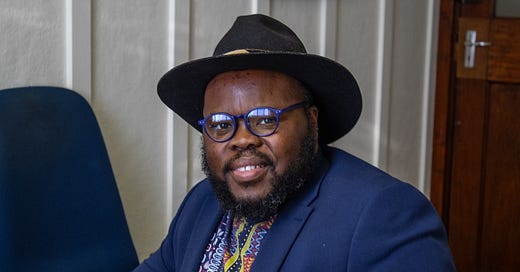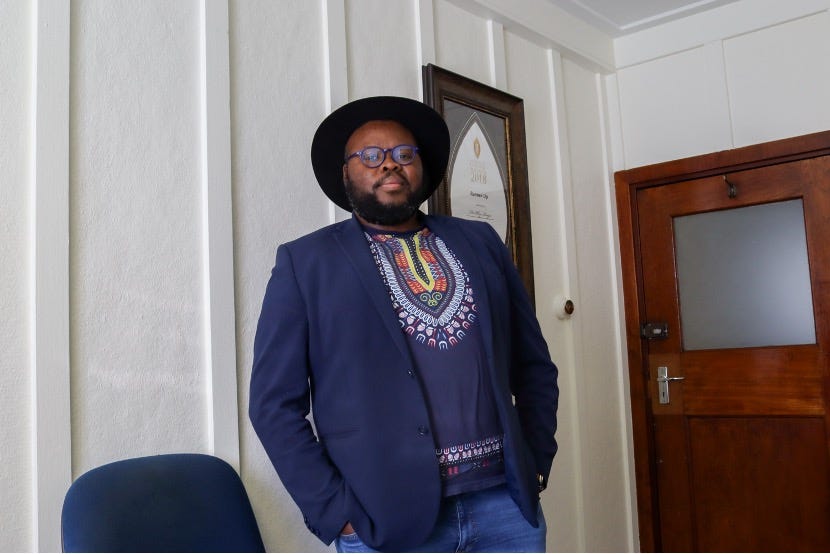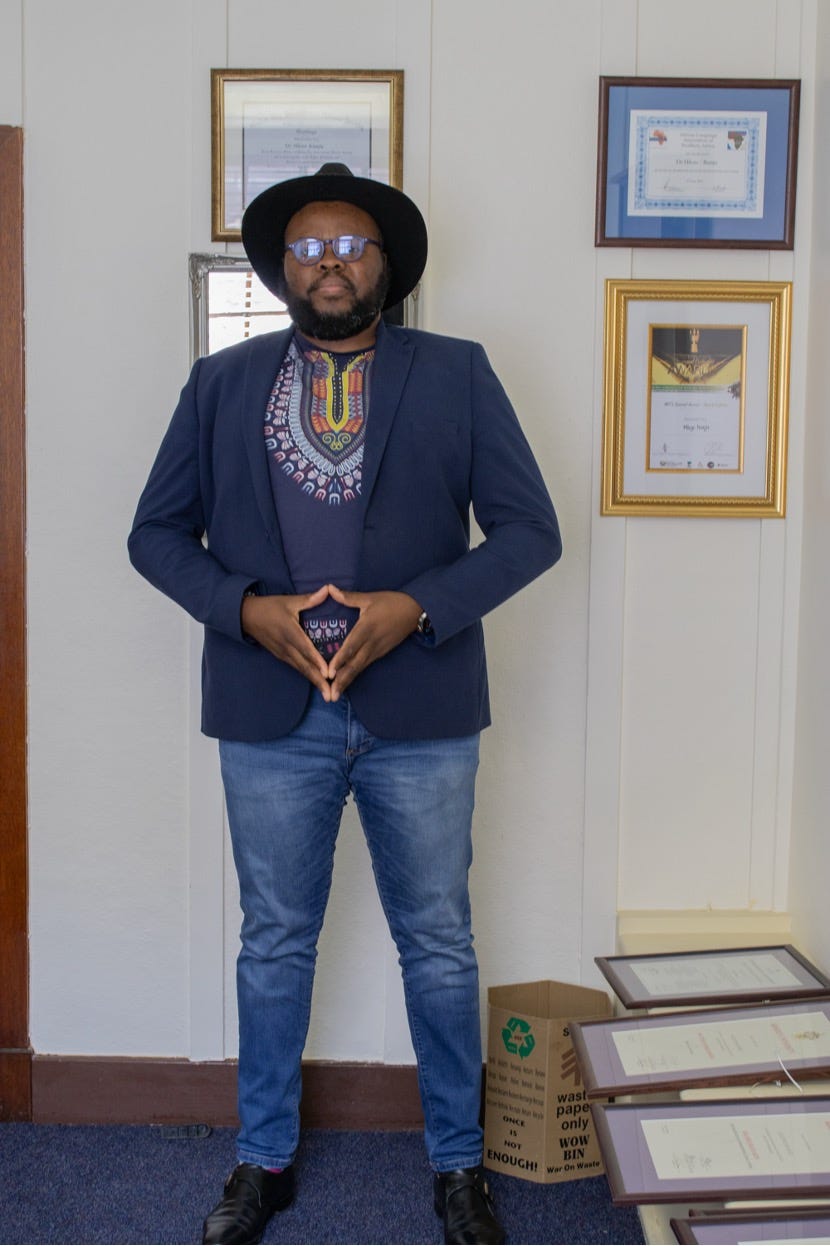Dr Hleze Kunju: Bridging Cultures Through African Languages and Scholarship
By Zusiphe Nontsele
In the heart of South Africa, where diverse languages and rich cultural heritage come together, Dr Hleze Kunju has emerged as a trailblazer in academia. In addition to his work, he is a speaker, lecturer, researcher, author, actor, poet, musician, and documentary co-writer and presenter.
He has also broken ground with a PhD thesis written entirely in isiXhosa at the University currently known as Rhodes. His decision to write his thesis in his home language marks a significant milestone in the academic environment. An esteemed lecturer at the University of Cape Town, Dr Kunju’s work exemplifies the intersection of linguistic identity and academic excellence.
A scholar rooted in isiXhosa
Dr Kunju’s academic journey is deeply rooted in Mqanduli, Eastern Cape, a region known for its vibrant Xhosa culture. Research shows that rural areas like Mqanduli have very little access to resources, teachers, and the English language. “English was taught in isiXhosa—every subject was taught in isiXhosa” he chuckles. This meant that he never had an opportunity to learn in a predominantly English environment until University.
In his first year at Rhodes University, he registered for Drama and Music, which were quite close to his heart. He states that he only did isiXhosa in second year so he could at least have somewhere he could speak his home language, since English was required everywhere else. “But then, to my surprise, isiXhosa was kind of taught in English,” he exclaims. “Everything was the other way around.”
“I want try to make a difference for the people behind me so that when they come into the space, it’s a little bit better.”
His decision to write his PhD thesis in isiXhosa was a personal choice rather than a political one. “When it blew up, I was shocked,” he reflects. “It was not my aim to use it as a decolonisation piece.” In an academic world that is predominantly influenced by English scholarship, Dr Kunju’s use of isiXhosa was a deliberate act of amplifying his voice within research and showing respect to his tribe.
A groundbreaking thesis
His thesis is titled IsiXhosa Ulwimi Lwabantu Abangesosininzi eZimbabwe: Ukuphila Nokulondolozwa Kwaso (IsiXhosa, The Language of Not So Many People in Zimbabwe: Its Life and Preservation). It presents the existence of a whole nation of Xhosa people based in Zimbabwe with a Xhosa culture and beliefs that many did not know about. His work dives deep into how these Xhosa people ended up in Zimbabwe and how they managed to keep their language and culture alive, offering insights into the lives of the people in that community.
In his research, Dr Kunju employed a qualitative interviewing approach to ensure that their voices were authentically represented. This thesis highlights the resilience and agency of this community. In this, he was able to capture the nuances and subtleties of a nation that had been reletively unknown for so long. He also highlights his struggles with writing the thesis. “I felt like I was writing two theses in one because I constantly had to translate from English every time I found something I could use,” he explains. “There is very little research literature in isiXhosa out there.”
“I felt like I was writing two theses in one because I constantly had to translate from English every time I found something I could use.”
A catalyst for this work was him finding out about a language policy at his institution that allowed students to write and access education in their mother tongue. He also stated that it would have been disrespectful for the first scholarly work about the amaMfengu people to be written in a language other than theirs.
Impact and recognition
Dr Kunju’s use of isiXhosa has played a crucial role in promoting the value and visibility of indigenous languages in academic research. “I want try to make a difference for the people behind me so that when they come into the space, it’s a little bit better,” he says. It may also encourage other scholars to consider the cultural and linguistic contexts of their work. In his work, he aims to foster greater respect for South African Nguni languages in education.
“My passion came from trying to prove that we do not have to kill ourselves with English.”
In recognition of his amazing work, Dr Kunju has received several awards, including the Excellence Recognition Special Award in 2018 and the Most Outstanding PhD Thesis Award. “The second day after my graduation, upon switching my laptop on, I saw tons of emails from China, Germany,” he recalls. “There are articles that I can’t even read.”
Champion of multilingual academia and advocate for linguistic diversity
Beyond his research, Dr Kunju is a passionate advocate for linguistic diversity in academia. “My passion came from trying to prove that we do not have to kill ourselves with English,” he argues.
His advocacy extends to his current role as a lecturer. He is dedicated promoting the isiXhosa language by finding as many isiXhosa novels as possible to use when teaching his students. But, as much as he advocates for isiXhosa, he stresses the importance of multilingualism. “I want every individual to be able to use any language that they are more comfortable in.”
Looking forward
Dr Kunju’s work continues to show that embracing linguistic heritage can lead to a more nuanced approach to scholarship. His work reaffirms the power of language as a tool for academic and social transformation. He is currently working on an isiXhosa poetry anthology. We shall keep an eye out for it!






